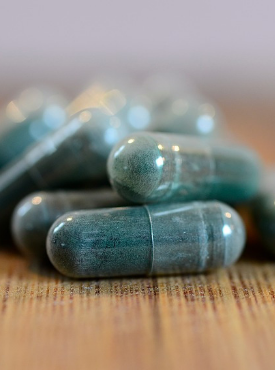2019 Aug 13
3rd September 1928, the day Alexander Fleming walked into his cluttered laboratory to make a discovery which would alter the course of history. Since that fateful day, antibiotics have become the silver bullet we cannot live without – saving millions of lives, increasing average life expectancy by 8 years, and giving the Allies that crucial advantage which would eventually win them World War II. Just imagine what a world without antibiotics would look like. Quite frankly, this is the crisis we are facing today. Antibiotic resistance is a real concern and it has the potential to leave global health systems crumbling. So what can we, the general public, do about it? The answer is a promising one – a considerable amount once we know the role we play.

What is antibiotic resistance?
Before we discuss antibiotic resistance, we need to discuss antibiotics and what they are. That day Alexander Fleming stepped into his laboratory, it wasn’t a brightly coloured amoxicillin capsule he found sprawled across the floor posing like Kate Winslet on Jack’s couch. You see, microbiology is hardly that glamorous. Instead, a stack of agar plates he’d been growing bacteria on caught his attention. Cutting to the chase, one particular plate had a big, fat, ugly, spot of mold on it. Naturally, Fleming was about to throw away the plate before he noticed there was no bacteria growing around the mold. Something from the mold was preventing bacterial growth. The chemical responsible, penicillin, was the very first known antibiotic. Fast-forward to today and we have a whole range of antibiotics equipped with the ability to kill bacteria and fight bacterial infections.
Since then the tables have turned. Bacteria are being exposed to more antibiotics. The issue is that these small germs can reproduce faster than rats on steroids. When it takes a mere 20 minutes for a population to double, it is so easy for genetics to be copied wrong. Since the genes tell the bacteria what to do and how to act, a mistake in them can make a cell which would normally be killed by antibiotics completely unaffected and free to make more cells with these superior genetic changes. Antibiotics are becoming less effective by the hour as bacteria build defenses against them.
What can we do about it?
Thankfully there are steps we can take and the world doesn’t have burn at the figurative hands of these micro-sized monsters. Here are a few precautions anyone can take when dealing with antibiotics to keep this silver bullet of a medication untarnished.
Seek professional advice
Only use antibiotics if they have been recommended by a healthcare professional. They are incredible drugs but are also useless if taken for a common cold or the flu which are caused by viruses as opposed to bacteria. By taking these medications unnecessarily, we are unintentionally giving harmless bacteria opportunities to change into mutant versions of themselves.
Take the full course
Always take the full course of antibiotics. Yes, you may feel fit enough to run a marathon on your third day of a five day course but don’t let that stop you from taking your meds. There was a reason you were given five days of medication. You may feel fine by day three but there also may still be remnants of the infection floating around inside you. Taking all five days just means you are wiping your body clean of every bit of infection leaving nothing which could later grow into an army of resistant bacteria.
Take care of yourself
Last but not least, look after yourselves. Don’t forget to treat yourself – whether it’s buying yourself an occasional cupcake or simply giving yourself some time to relax and reflect during the week. Eat well. Make sure your diet is balanced with fruit, vegetables, and sources of proteins such as meet or chickpeas. Happy and healthy individuals don’t get ill as often thus taking antibiotics out of the equation altogether.







